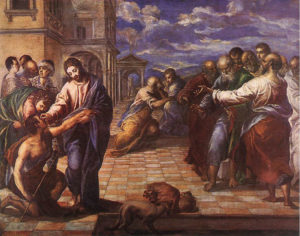
“I am the Light of the world,” proclaimed Jesus in the 9th chapter of the Gospel of John, a statement layered with profound pastoral and–especially–theological meaning, meaning that we’ll discuss later.
Two weeks ago, my (St. Mary’s) parish had its 2nd Annual Legacy of Virtue Father/Son Communion Breakfast and Commissioning Ceremony, and event aimed at restoring and strengthening a fading tradition.
Over the centuries, generations of men throughout the world have known that one of their main responsibilities was to form their boys into competent men of good character, teaching them the virtues of wisdom, courage, self-control and justice. St. Paul teaches us that Jesus improved upon those virtues, with the addition of faith, hope and love. Thus, Christian men have the greatest model of virtuous manhood, in Jesus, and of legacy, in His commissioning the Apostles to carry on His work and help others fulfill God’s purpose for them. The Church is evidence of their success. But in recent decades many men have struggled with their commission, to be models of heroic virtue for their sons and daughters. The result has been weakened faith in the family, the culture and the Church.
In response to this challenge, the men’s groups of St. Mary’s have teamed up to host this commissioning event, and “Legacy of Virtue” was born. The purpose of this event is to strengthen our faith and renew the tradition in which fathers, or other trusted male mentors, emphasize the heroic nature of the Christian virtues and the importance of men passing on the Great Commission to their sons. Restoring this tradition rekindles holiness, empowering all of us to fortify what is perhaps the most dear to Our Heavenly Father: a loving family.
I give great thanks for the support from my pastor, Msgr Ken Tuzeneu, and to my brothers in Christ from the various men’s ministries in our parish.
Our first year was more of a Mission Statement. This year we emphasized how to live virtuously while going through great struggles, since we will all go through them–including tragedies.
***
Present from almost the beginning of human history, innocent suffering has posed the greatest challenge to humanity.
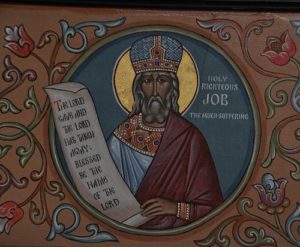
Since we’re rational beings, our first response is often to ask, “why?” or “why me?” Christians quickly follow that question with a much more difficult one: “How can or why would a loving God allow his greatest creation to experience so much pain and sorrow?” Those questions point to a profound misunderstanding about the meaning of the Christian life, by suggesting that those who follow Christ’s way and do God’s will won’t suffer as unbelievers suffer? Neither Sacred Scripture nor our Catholic Tradition give us any evidence for that. When Jesus invites us to follow him, “because my yoke is easy and my burden is light,” he is urging us that we will find His Way—not life—easy.
These ordeals bring us to a decision point:
- Do we quit, wave the white flag of surrender, become bitter and resentful? Do we blame God, and thereby discourage others rather than seek help from those “others”?
- Or do we persevere and strive to overcome, learning to receive love and give love in that process, thereby giving encouragement by our virtuous example?
Our great stories and legends teach us about heroic men and boys.
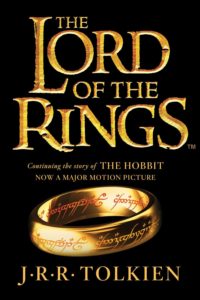
This struggle becomes a contest in which mind, body and spirit are tested—often severely—and is strongly suggested by our language, when we say “I’m wrestling with this or that problem.”
With that in mind, can we prepare for the inevitability of suffering, and train ourselves into virtuous fitness, much as we can train ourselves intellectually, physically and nutritionally? For faithful Catholics, the answer should be a resounding “Yes!” because of our 2,000-year tradition of faithful examples who decided—by a free will choice—to have joy by giving glory to God:
St Paul said, “We rejoice in our suffering!”
St Peter told us, “But rejoice in so far as you share Christ’s suffering!” (that’s pretty good company!)
And, Jesus taught us about that easy yoke and light burden, in spite of what the world can do to us, by saying, “In the world you willhave trouble; but take courage—take courage from Me!—because I have conquered the world.”
Jesus, the most virtuous person, offers us the chance to live His Way and gives us the courage to model him—whatever the world throws at us or whatever we might have done to the world in our sin. He also offers us His love, mercy and forgiveness when we have caused our suffering.
That tradition of overcoming lives on in Anthony Ferraro, and in those who encourage him because of their love for him.
Born with a congenital eye malformation that eventually made him legally blind, Anthony had many opportunities to quit over the great frustrations from his handicap—one especially felt during his teenage years. But he had the good fortune to receive that supportive training, from his parents and older brother (A loving family makes a powerful difference). Amazingly, he also became a wrestler, an endeavor that, perhaps unlike any other, prepared him for the trials and tribulations he would face—on the mat or off (I know that my son, Kevin, benefitted greatly from his participation in this sport. He is a wrestler). With the help of dedicated and selfless coaches, Anthony learned to face those challenges, and overcome both them and himself. This experience is depicted in the award-winning film, “A Shot in the Dark: He May Not See, But He Believes” (You can purchase the video here vimeo.com/ondemand/ashotinthedark)
***
Now let’s briefly return to the title of this post.
In a prior post I’ve written about the many “I Am” messages in John’s Gospel, all of which recall the same words used by the God of Israel to Moses, in Exodus:
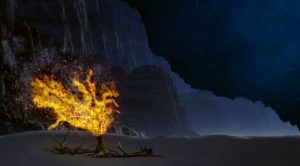
“I Am” represents the ultimate truth, Gods existence, Jesus’ identification with his Father (in philosophical terms, a “numerical one”). Jesus is the I Am for all of us, as The Ultimate Light (that never extinguishes), The Bread (that always feeds), The Water (that always quenches), The Way (that gives our destination), The Truth (that never deceives) and The Life (that we live with Him, forever). Jesus, as the source of light, opened the eyes of the blind man. As he said to St Thomas, the Apostle, “You believe because you have seen; blessed are those who haven’t seen, yet they believe.”
Those who believe in Jesus, will see…
***
I wrote the following poem for that Legacy of Virtue event, with Anthony–and all of us–in mind:
“The Overcomer”
Thomas R Caffrey (2/16/19)
I entered life in shock downstream,
Departing from love’s womb;
Too young to ponder, hope or dream,
Or even to presume
That normalcy and life quite fair,
Will partner on my path;
Preventing plights that can ensnare,
And change my joy to wrath!
Then “Fairness,” you abandon me,
To sadness, loss and pain;
“Undeserved!” I cry, angry,
Discourage, swarms my brain.
Persist, I must, but not sure how,
And “why” has yet come clear;
That fair life doesn’t seem quite so,
The cuts go deep I fear
My winding journey then descends,
Hope’s offer, blind to me;
“I’m lost!” I yell but find no friends,
Then fall, “Please, help me see!”
A plea! I hear, a sound afar
A primal cry of hurt;
An Innocent becomes my star,
To lift me from the dirt
To light my path, its purpose now,
And beckons me, “strive on!”
Behind me “past” I make my vow,
Those tears I move beyond
The pain? It’s less. What made that be?
Could it be from the other?
My stagger becomes straight on way,
To lift my injured brother.
That “why” was answered, for more than me,
I’m sure from up above;
For Triumph comes exultantly,
When first we come to love.
Have you overcome great difficulties? Of course, or else you wouldn’t exist! The biggest challenges for us to overcome, are those resulting from the hurt and damage that we have caused. I’d welcome your story, to learn how you overcame the difficulties life has brought your way–0r that you’ve brought on yourself.
Amen.
Tom
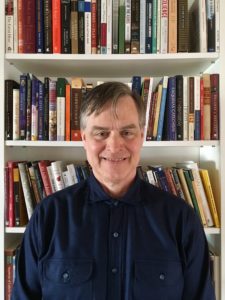
Leave a Reply